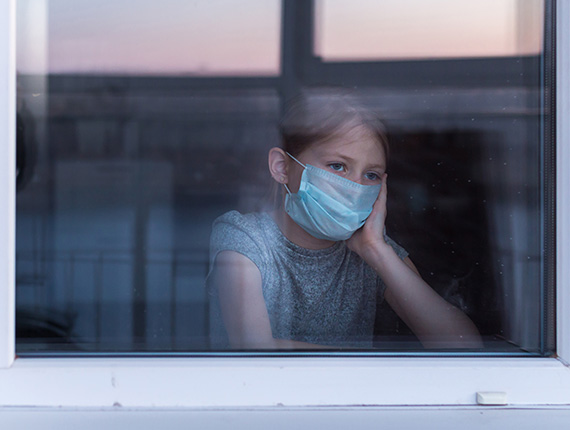Paid Family Leave Helps Reduce Infant Abuse, School of Public Policy Study Finds

Infant maltreatment drops significantly when parents gain access to paid family leave, according to a new study led by School of Public Policy researcher Lindsey Rose Bullinger.
The study indicates such policies are not only good for children but also could reduce the burden on child protection agencies — and maybe even ease the associated budgetary strain on governments.
Bullinger, an associate professor in Georgia Tech’s School of Public Policy, worked with researchers at the University of Connecticut and the nonprofit Prevent Child Abuse America to analyze U.S. government data from the National Child Abuse and Neglect Data System.
In a paper recently published in Child Maltreatment, Bullinger and her colleagues reported that, in states with paid family leave, reports of infant maltreatment fell 14%, substantiated cases of maltreatment declined 22%, and home removals due to unsafe conditions dropped 46%. Those reductions are all compared to states without such programs.
“There are several possible explanations for why access to paid family leave would reduce reports of child abuse,” Bullinger said. “One is that paid family leave might help parents better afford basic needs. It could also be that paid leave helps improve parents’ mental health and reduce stress.”
In addition to uncovering the positive impact of paid family leave on babies, Bullinger said the study also potentially opens a new line of discussion about paid family leave.
While the debate over paid leave often centers on the cost to businesses, the researchers said policymakers might want to take another look at such policies not only because of the positive impacts for infants and families, but also because of the potentially positive budgetary effects of leave programs on other programs.
“There are potentially vast implications for government budgets and other macroeconomic factors,” the authors wrote in their paper. “In addition to demonstrating possible cross-program interactions between family services and employment services, this work may in turn offer a more complete cost-benefit analysis of PFL programs.”
Child protection agencies spent about $31 billion in 2023, according to the nonprofit research organization Child Trends.
State-sponsored paid family leave programs are available in 13 U.S. states and the District of Columbia and is under discussion in several other states. Many federal employees are eligible for paid family leave, but there is no national requirement.
The research was supported by funding from the Centers for Disease Control and Prevention (R01CE003178).
The paper, “More than Snuggles: The Effect of Paid Family Leave on Infant Maltreatment,” was published on Feb. 9, 2025, in Child Maltreatment. It is available at https://doi.org/10.1177/10775595251318939.
About the Researcher

Associate Professor Lindsey Rose Bullinger's research focuses on how public policies affect child and family health and well-being. Check out some of her other work:
The study was the first to examine the link between unconditional payments such as the tax credit and changes in child abuse and neglect.
The study found that the presence of an additional store accepting Supplemental Nutrition Assistance Program (SNAP) benefits in the least densely populated areas of Connecticut was associated with an 11.3% drop in substantiated cases of child maltreatment.
The Covid-19 pandemic forced schools and businesses to shut down, left millions out of work, and cooped up many families inside their homes for months on end. The combination led to an increase in child abuse and neglect and domestic violence — often in families with no history of such problems, Bullinger found in a 2020 study.



